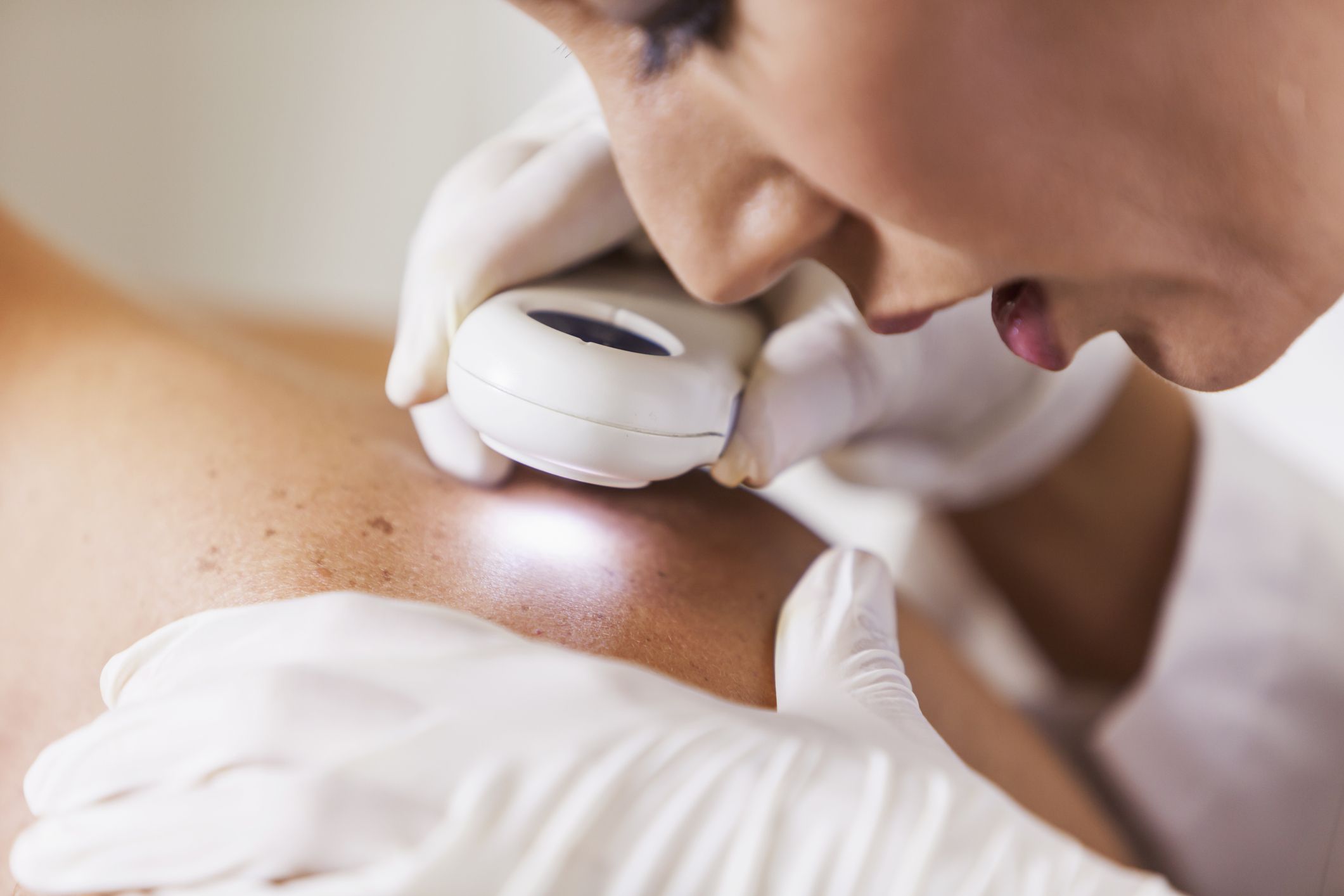Chromaderm Melbourne: Premier Dermatology Clinic for All Your Skin Demands
Chromaderm Melbourne: Premier Dermatology Clinic for All Your Skin Demands
Blog Article
Discovering the Duty of Skin Doctors in Detecting and Dealing With Diverse Skin Problem With Precision
From usual problems like acne and dermatitis to much more intricate disorders such as melanoma or uncommon genetic skin illness, dermatologists are at the leading edge of identifying and dealing with these conditions with precision. Beyond the surface area of skin problems exist interconnected aspects that influence diagnosis and therapy end results.
Relevance of Very Early Discovery
Early detection of skin conditions plays a vital duty in the reliable therapy and administration by skin specialists. Skin doctors rely on their competence to acknowledge subtle changes in the skin that might show underlying troubles, such as skin cancer cells, dermatitis, psoriasis, or dermatitis.
Identifying skin cancer in its early stages dramatically improves the diagnosis and increases the probability of effective treatment results. Stressing the importance of early detection emphasizes the critical function that dermatologists play in advertising skin wellness and well-being.
Advanced Diagnostic Techniques
Using modern technology and specialized experience, dermatologists employ sophisticated diagnostic methods to properly recognize and assess various skin conditions. One of the main tools in the skin specialist's analysis toolbox is dermoscopy, a non-invasive strategy that enables the examination of skin frameworks not visible to the naked eye. By magnifying the skin, dermoscopy aids in the early detection of melanoma, basic cell cancer, and other skin cancers. Furthermore, skin specialists may use confocal microscopy, a high-resolution imaging technique that enables them to visualize skin at a cellular degree without the demand for a biopsy. This modern technology is specifically handy in detecting inflammatory skin problem and tracking treatment efficacy.
Moreover, molecular testing has changed the diagnosis and treatment of skin conditions by allowing dermatologists to evaluate hereditary mutations connected with problems such as melanoma and hereditary dermatoses. Through strategies like polymerase domino effect (PCR) and next-generation sequencing (NGS), dermatologists can give individualized treatment strategies based on a person's particular hereditary profile. These innovative diagnostic devices improve the accuracy and efficiency of dermatological treatment, eventually bring about much better results for patients.

Tailored Therapy Approaches
With an extensive understanding of skin problem achieved through innovative analysis strategies, skin specialists tailor treatment approaches to address specific person requires efficiently. This customized technique is vital in making sure ideal outcomes for patients with varied skin problem. By considering factors such as skin kind, case history, way of life habits, and therapy choices, dermatologists can create therapy plans that are especially tailored to each person.
Tailored treatment methods might involve a mix of therapies such as topical medications, dental medications, minimally intrusive procedures, or way of living adjustments. Individuals with acne may benefit from a routine that includes topical retinoids, dental prescription antibiotics, and in-office treatments like chemical peels or laser treatment. On the various other hand, individuals with dermatitis may need a therapy plan concentrated on gentle skincare regimens, moisturizers, topical corticosteroids, and determining and staying clear of triggers that intensify check out this site their problem.

Handling Chronic Skin Disease
Skin specialists play an essential role in creating long-lasting management methods for chronic skin problem, making sure effective treatment and enhanced quality of life for people - Chromaderm Melbourne. Handling persistent skin disease calls for an extensive approach that exceeds simply treating signs and symptoms. Skin specialists are educated to not only detect these conditions precisely but likewise to develop individualized therapy plans that attend to the underlying causes and aspects adding to the description skin problem's determination
In taking care of chronic skin disease, skin doctors frequently use a mix of treatment techniques customized to each client's certain demands. This may include topical drugs, dental medications, way of life adjustments, and step-by-step interventions such as laser therapy or phototherapy. Routine follow-up appointments are essential to check the problem's development, adjust therapy as required, and offer ongoing assistance and education and learning to patients.
Additionally, skin doctors play an essential role in equipping people to take an active duty in managing their skin disease. By enlightening clients concerning their condition, therapy options, and preventive actions, skin specialists assist people make notified decisions and cultivate healthy and balanced skin routines that add to long-lasting skin health and overall wellness.
Collaborative Treatment Approaches
In the all natural administration of skin disease, joint treatment strategies including numerous medical care professionals are vital for optimizing individual end results. Dermatologists commonly operate in multidisciplinary teams to give extensive care that attends to the diverse demands of patients with skin problem. By working together with health care physicians, allergists, plastic cosmetic surgeons, and various other specialists, skin specialists can make sure that people obtain integrated and coordinated care tailored to their certain problem.
Joint care strategies also reach person education and support. Skin specialists can function very closely with pharmacologists, psycho therapists, and registered nurses to enlighten people about important site their skin disease, therapy choices, and safety nets. This interdisciplinary method encourages patients to actively take part in their treatment and make notified choices regarding their wellness.
Furthermore, collective care enables a more all natural analysis of clients, taking into account not only the physical signs of their skin problem however likewise the social and mental impact it might have. By considering the wider ramifications of skin problems, health care experts can develop a lot more personalized treatment plans that attend to the unique needs of each patient. Eventually, joint treatment methods play an essential function in delivering high-quality, patient-centered care for individuals with diverse skin problem.
Conclusion
In final thought, skin specialists play a vital role in detecting and treating a vast array of skin problems with accuracy. Via early discovery and advanced diagnostic strategies, they have the ability to give tailored treatment strategies for optimum outcomes. By managing persistent skin disease and carrying out joint care techniques, skin specialists guarantee reliable and extensive take care of their people. Their experience and commitment add considerably to the overall health and well-being of individuals with varied skin worries.
Dermatologists count on their competence to acknowledge subtle modifications in the skin that may show underlying problems, such as skin cancer cells, eczema, dermatitis, or psoriasis. By multiplying the skin, dermoscopy aids in the very early discovery of melanoma, basic cell carcinoma, and various other skin cancers cells.With a comprehensive understanding of skin problems attained with sophisticated diagnostic methods, dermatologists tailor therapy strategies to deal with individual patient needs successfully. Skin doctors are trained to not only identify these conditions properly however also to develop individualized treatment plans that attend to the underlying variables and causes adding to the skin problem's persistence.
In handling persistent skin problems, skin specialists typically use a mix of treatment methods tailored to each patient's certain requirements.
Report this page